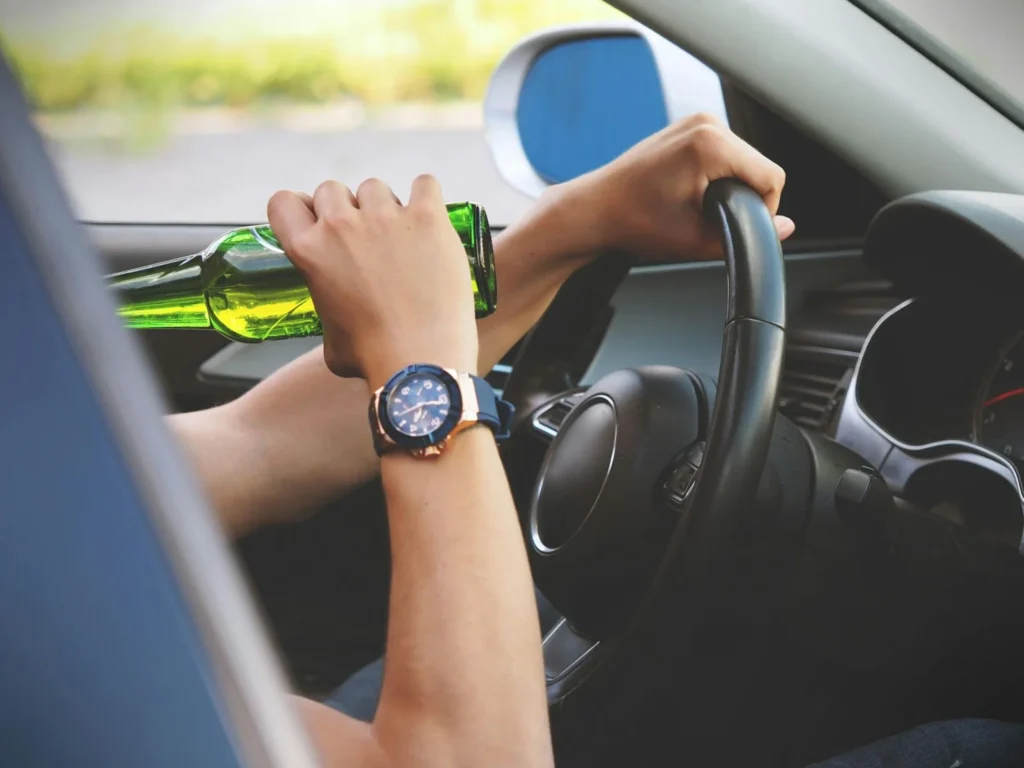As we examine the legal landscape in Denver concerning drunk driving accidents, we encounter severe penalties designed to deter such perilous conduct and uphold public safety. These penalties range from substantial fines to license suspension and even imprisonment, with a particularly stringent stance on underage drinking and driving. However, the implications of these accidents extend beyond the immediate criminal charges, impacting civil litigation where victims seek recompense for their losses. This prompts an inquiry into how well-equipped these victims are to navigate this legal terrain, a matter deserving of further exploration.
Understanding Drunk Driving Laws
Although drunk driving laws vary from one jurisdiction to another, they all share a common purpose: to prevent accidents and protect the safety of all road users. These laws are informed by drunk driving statistics that underscore the urgent need for diligent enforcement and effective prevention strategies. Each year, thousands lose their lives to drunk driving incidents, a grim reality that reinforces the necessity of stringent legislation. The legal consequences of drunk driving are designed not merely to penalize offenders but to deter potential ones. By understanding the laws and their implications, we can contribute to preventing these avoidable tragedies. Additionally, public education on the consequences of drunk driving can further enhance these prevention strategies.
DUI and DWAI: Definitions and Differences
Two vital terms in the domain of drunk driving laws are “Driving Under the Influence” (DUI) and “Driving While Ability Impaired” (DWAI). Both are serious offenses, but they differ in their definitions and consequences. A DUI is charged when a motorist operates a vehicle with a blood alcohol concentration (BAC) of 0.08% or higher. This is typically confirmed through breathalyzer tests. On the other hand, a DWAI is charged when a driver’s BAC is between 0.05% and 0.08%, indicating their driving ability is impaired to the slightest degree. This charge can also arise from field sobriety tests indicating impairment. Understanding these definitions is essential as they play a significant role in the legal consequences of drunk driving incidents.
Potential Criminal Penalties
Shifting from the definitions of DUI and DWAI, it’s imperative to understand the potential criminal penalties associated with these offenses. Particularly in Denver, the DUI penalties are stringent and can escalate to felony charges with severe consequences. The ensuing discussion will provide an in-depth exploration of these penalties, highlighting the critical importance of adhering to safe driving practices.
DUI Penalties in Denver
Have you ever considered the serious legal ramifications of a DUI conviction in Denver? The laws are stringent and penalties severe in an effort to combat the alarming drunk driving statistics plaguing the city. Convicted individuals may face substantial fines, license suspension, mandatory alcohol education programs, and even incarceration. The severity of these penalties escalates with repeated offenses, showcasing the city’s commitment to prevention strategies. These measures, while harsh, aim to deter potential offenders and reduce the occurrence of drunk driving accidents. Becoming aware of these consequences is not just a cautionary tale for potential offenders, but also a plea for all residents to participate in efforts to make Denver’s roads safer. The message is clear: drunk driving is not worth the risk.
Felony Charges and Consequences
Beyond the immediate penalties of a DUI conviction, a more ominous threat looms: felony charges and their consequential criminal penalties. Felony convictions in Denver for drunk driving accidents typically involve substantial fines, long-term imprisonment, and the permanent revocation of driving privileges. The severity of these penalties underscores the importance for robust legal representation. Skilled attorneys understand the complexities of the law and can navigate the legal system effectively to guarantee your rights are protected. Additionally, the social stigma attached to felony convictions can affect employment prospects and personal relationships. Consequently, the impact of such charges extends beyond the courtroom. It is crucial to comprehend these legal consequences fully and seek expert counsel to mitigate potential fallout.
Drunk Driving Conviction Impact on Licenses
A drunk driving conviction carries significant implications for your driving privileges, including potential license suspension and the process for reinstatement. The duration of suspension can vary widely, depending largely on the specifics of the conviction. A clear understanding of these impacts is essential, as it can influence decisions made in the aftermath of a drunk driving accident.
License Suspension Duration
Upon conviction for drunk driving, one of the immediate and severe consequences faced by the offender is the suspension of their driving license. In Denver, the duration of this suspension varies based on the number of offenses and the degree of impairment. For first-time offenders, the suspension can last up to nine months. Repeat convictions result in longer suspension periods, even up to several years in severe cases. Temporary driving permits may be available under certain circumstances, but this is not a guarantee and is subject to stringent requirements. While the license reinstatement process is possible after serving the suspension period, it is an arduous process reflecting the seriousness of the offense. This underscores the need for responsible behavior to avoid such severe consequences.
Reinstating Driving Privileges
Despite the challenges faced during the license suspension period, it is essential to understand that reinstating driving privileges is not an automatic process, but one that requires deliberate and careful steps. The license reinstatement process post a drunk driving conviction in Denver is governed by strict eligibility requirements. You must fulfill legal obligations, which might include completion of a state-approved driver education course or alcohol treatment program. Additionally, reinstatement often entails payment of fines and reinstatement fees. It is also necessary to provide proof of insurance and possibly install an ignition interlock device. Maneuvering this process can be complex, hence, professional legal advice could be advantageous to guarantee your rights are protected and to facilitate a smoother reinstatement process.
Civil Lawsuits Following DUI Accidents
While it is well-known that drunk driving can lead to criminal charges, less commonly understood is the potential for civil lawsuits following DUI accidents. Victims, or their families, can file negligence claims against the intoxicated driver. These lawsuits seek to compensate for damages including medical expenses, loss of earnings, and pain and suffering. The drunk driver’s insurance company can also be held liable, potentially facing significant payouts. However, it is important to recognize that insurance liability limits may prevent full compensation. As a result, an extensive understanding of both criminal and civil consequences can deter potential drunk drivers. Understanding the full legal implications, including potential civil lawsuits, can amplify the message that drunk driving is not only hazardous but also financially devastating.
Rights of DUI Accident Victims
Building on the understanding of civil lawsuits and the potential liabilities of drunk drivers, it is equally important to understand the rights of the victims in DUI accidents. Victims are entitled to seek damages for physical injuries, property damage, and emotional distress caused by the incident. Their rights also extend to compensation for loss of income and future earnings if the injury resulted in temporary or permanent disability. Victims have the legal option to file a lawsuit against the drunk driver, but they must prove negligence, causation, and harm. The burden of proof lies on the victim. A Denver drunk driving accident lawyer is critical to ensuring justice and fair compensation for the harrowing ordeal endured by DUI accident victims.
Seeking Legal Help After DUI Accidents
After experiencing the trauma of a DUI accident, it is highly advisable for victims to seek legal assistance. Maneuvering through the complexities of law can be intimidating, particularly during a distressing time. Skilled legal representation can help to alleviate these stresses, guiding victims through the process of filing claims and procuring deserved accident compensation. DUI laws in Denver are stringent, and victims must fully understand their rights to successfully pursue legal recourse. Many victims may underestimate the amount of compensation they’re entitled to, underscoring the need for experienced legal counsel. By seeking professional legal help, victims can guarantee their rights are protected, and their needs are met. No one should face the aftermath of a DUI accident alone – knowledgeable legal support can make a significant difference.
Frequently Asked Questions
What Is the Process for DUI Arrest and Court Proceedings in Denver?
In Denver, a DUI arrest initiates with field sobriety tests, followed by legal charges. Court procedures include arraignment, pre-trial motions, plea bargaining or trial, and, if convicted, sentencing for the DUI offence.
How Does a DUI Conviction Affect Car Insurance Rates in Denver?
A DUI conviction in Denver markedly raises car insurance rates due to increased risk perception. Insurers view DUI penalties as an indicator of risky behavior, leading to substantial insurance implications for the convicted individual.
Can DUI Charges Be Expunged From My Record in Denver?
In Denver, expungement of DUI charges is possible under certain conditions. The legal timeline and expungement eligibility depend on factors such as the severity of the offense and completion of sentencing requirements.
How Does Denver Law Handle DUI Cases Involving Minors?
Under Denver law, DUI cases involving minors are treated seriously, with stringent minor penalties. Legal implications include severe fines, license suspension, and mandatory alcohol education, emphasizing the gravity of underage drinking and driving accidents offenses.
What Are the Rehabilitation and Education Programs for DUI Offenders in Denver?
In Denver, DUI offenders are often mandated to participate in rehabilitation programs and education courses. These aim to address substance misuse issues, promote responsible behavior, and prevent future impaired driving incidents.







